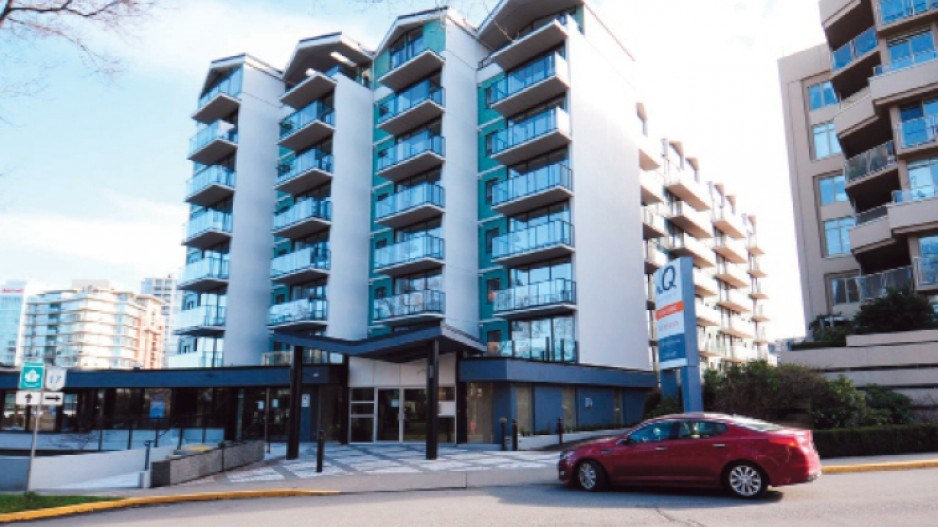Deep ties
The depth – and seamlessness – of Vancouver’s connections with Asia are often unfathomable to those not from here. Yet it’s hard to think of someone in this city who hasn’t benefited in some way from the flow of immigration and capital from Asia. Whether via property taxes from established businesses such as H.Y. Louie Co. Ltd. and London Drugs Ltd., or the amazing selection of produce at shops run by newer arrivals, Asia is very much part of the civic fabric.
“Whatever we do, there’s Chinese cultural integration,” Lily Korstanje, managing director of Magnum Properties Ltd., told a recent Urban Land Institute seminar regarding changes to Canada’s immigrant investor program.
The daughter of Hong Kong immigrants herself, Korstanje – and other participants in the discussion – said recent federal policy changes matter less to Chinese investors (who have enough issues with their own government) than Vancouver’s historic connections with Asia.
“We’re reaping the benefits of the times that we have grown together with all of the Vancouverites and Canadians, and that in and of itself is terribly important to mainland Chinese,” she said.
The seminar was a foretaste of what participants in ULI’s spring meeting in Vancouver this week will have a chance to explore as they discuss issues related to real estate investment and development.
“San Francisco, Los Angeles, San Jose, Seattle, they’re all seeing the influx of Asian capital,” said Edmond Luke, a partner with law firm Fasken Martineau DuMoulin LLP, moderator of a pre-meeting panel ULI BC is hosting regarding “the Asia factor” on the West Coast. “They’re wanting to participate in making sure they follow and stay close to the trend and the opportunities.”
Vancouver’s challenge is providing enough opportunities to absorb the tsunami of capital that has hit the West Coast in the past five years.
Luke pointed to Shenzhen-based Hazens Real Estate Group as an example. Hazens was scouting properties in Vancouver for its first acquisition in North America but it eventually bought the 802-room Sheraton Gateway LAX hotel in Los Angeles last year for US$96 million.
Chinese investors who are looking to invest in B.C. are consequently broadening their criteria.
“There are more and more dollars chasing fewer and fewer assets. We feel there could be as many as $10 chasing every $1 of real estate,” Mark Lester, senior vice-president, specialized assets, with brokerage JLL told the ULI panel on foreign ownership. “We’re now seeing a real diversification in terms of the asset classes that people are willing to go after.”
Popular, but rare
Apartment properties have been a popular asset class for international investors in many cities, and Vancouver is no exception. However, supply is limited and opportunities for new owners to enter the market are few.
While margins are thin and getting thinner, if the survey of income and expenses Bramwell & Associates Realty Advisors Inc. undertook last year is any indication, the long-term value of multi-family investments is appealing. Concert Properties Ltd., for example, has been a key builder of purpose-built rental units across Canada in recent years.
Between Ontario and B.C., Concert has developed and now owns more than 4,645 rental apartments.
The latest addition is the 124-unit Q Apartments in Victoria, a conversion of the former Queen Victoria Hotel. It opened April 1, with more than 41 units leased.
Senior opportunity
Fifteen years ago, seniors homes and care facilities were rising stars. The first of the baby boomers had yet to hit 65, but forward-thinking investors were eyeing a coming wave of affluent retirees.
Today, above-average vacancies and not-so-retiring seniors have kept cash flows – and property values – in check, while cheap financing has allowed buyers to snap up properties. Cap rates have compressed to 6% from 14% as REITs and other buyers have snapped up retirement homes.
With a few major deals set to close for existing properties, Robin Hill, principal of brokerage Carewest Properties Ltd., said the market is ready for a new wave of development.
“People are interested in the business of caring for seniors,” he said. “We’re involved a lot in looking for land for new developments, and that will be the next emphasis of the industry.”
Those properties are more likely to be focused on an active retiree living independently – and living well – and less on the easy-going pensioner of yore. While specialized care facilities will exist, a generation of healthier seniors is keen to maintain their desired lifestyle. •




